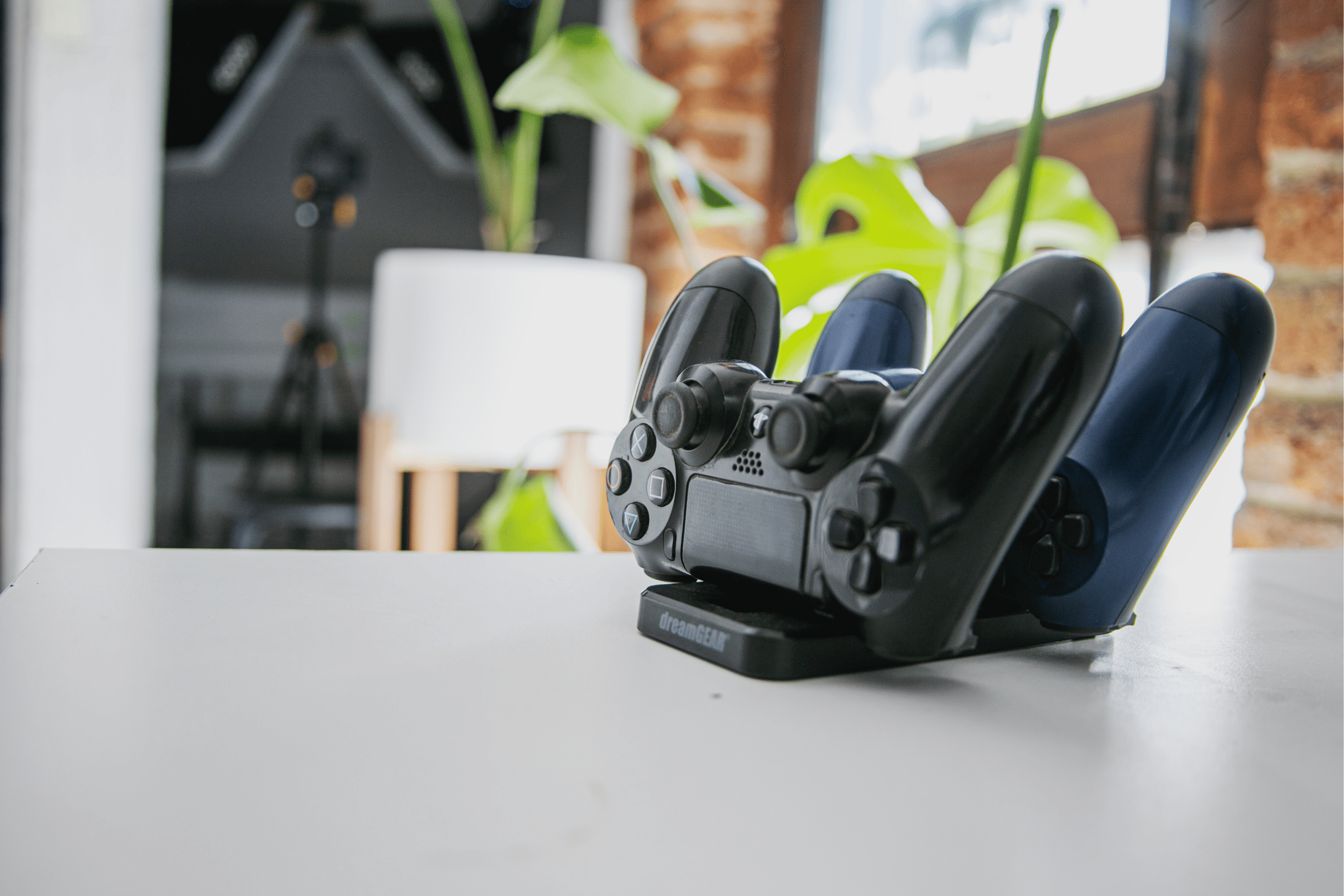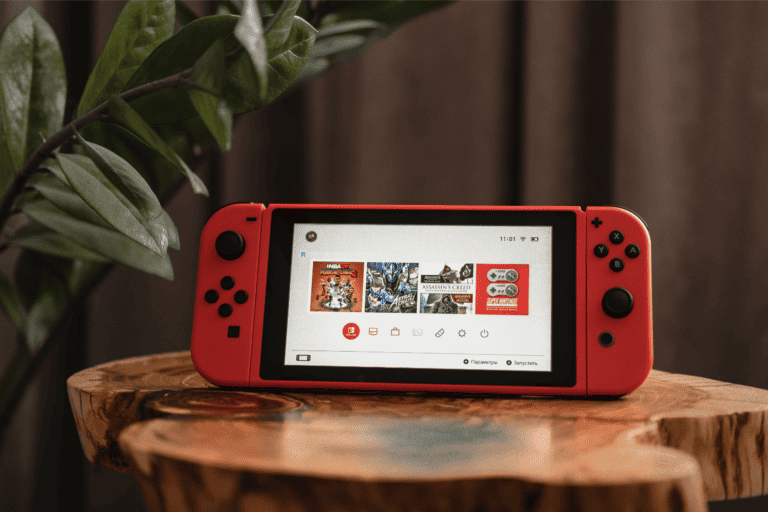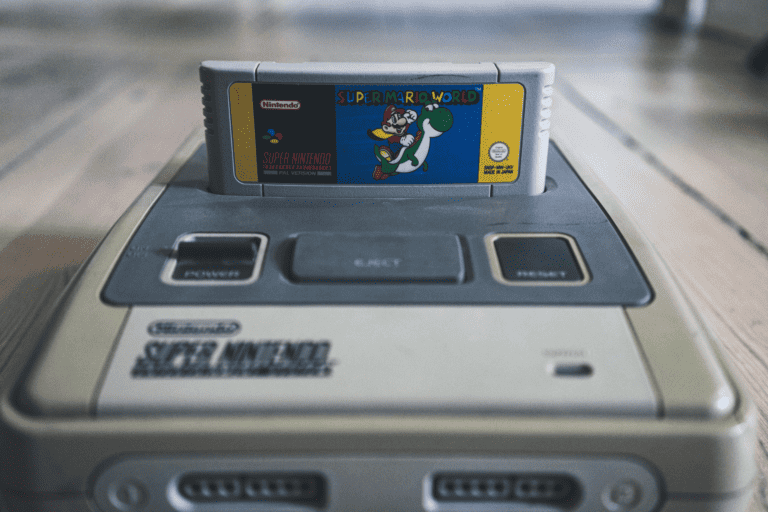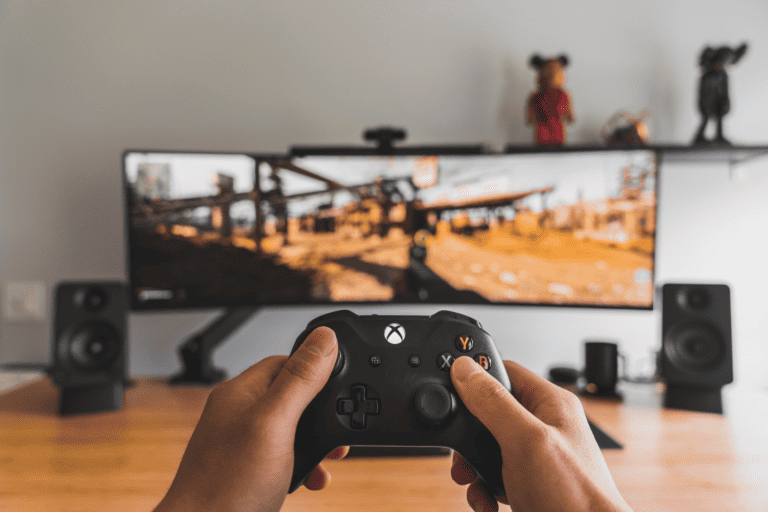
How long do video game consoles last?
Video game consoles typically last several years, with an average life shelf of 5 to 7 years. However, each console’s duration can vary depending on various factors such as hardware quality, usage patterns, and technological advancements.
In this article, we will delve into the factors determining how long video game consoles last, common issues, and the most durable gaming consoles of all time.
Most durable game consoles of all time
Based on our research and interactions with expert gamers, here are the video games with the best lifespan:
Nintendo GameCube
The console is recognized as the game console with the longest shelf life as it can last for approximately 12 years. Its lifespan was aided by its small size, robust construction, and use of premium components. Additionally, the GameCube’s had more advanced hardware components, which allowed it to withstand prolonged gaming sessions and physical wear and tear.
PlayStation 2
This was made 20 years ago and is regarded as one of the most resilient consoles ever made. Its lengthy lifespan of about 5 to 10 years. The PS2 controllers were renowned for their toughness, withstanding numerous hours of action.
Sega Dreamcast
The Sega Dreamcast launched in Japan was a sturdy gaming system because of its robust design and excellent construction. The Sega Dreamcast consoles have been known to function reliably for over 10 years.
Xbox 360
Despite some initial hardware problems, Microsoft’s Xbox 360 developed into a robust device with later updates. On average, the Xbox 360 console is designed to last for around 5 to 10 years.
Nintendo Switch
The Nintendo Switch uses a cartridge-based system. Since Joy-Con controllers are renowned for their strength and lifespan, the modular architecture of the console makes it simple to replace individual parts. The expected lifespan for Nintendo Switch ranges between five to six years.
Other common consoles and their typical lifespan
The table below shows in a systematic order (by year released) the typical lifespan of the various video game consoles:
| Year released | Game console | Typical lifespan |
|---|---|---|
| Mid-1980s | Nintendo Entertainment System (NES) | 10 years |
| Late 1980s | Sega Genesis | 10 years |
| Mid-1990s | Sony PlayStation | 10 years |
| 1995 | Nintendo 64 | 8-10 years |
| 2001 | PlayStation 2 | 12 years |
| Early 2000s | Xbox | 4-5 years |
| Early 2000s | Nintendo GameCube | 6-7 years |
| Mid 2000s | Xbox 360 | 10-11 years |
| Mid 2000s | PlayStation 3 | 10-11 years |
| Mid-2000s | Wii U | 12 years |
| Early 2010 | Xbox One | 7-8 years |
| Early 2010 | PlayStation 4 | 5 years |
| 2012 | Nintendo Wii U | 5 years |
| 2017 | Nintendo Switch | 5-6 years |
| 2020 | PlayStation 5 | 6-7 years |
Factors that affect the lifespan of game consoles
The common problems and faults that affect game console lifespan include:
Software and firmware issues
The expected lifespan of game consoles can be substantially impacted by software and firmware problems. These problems could worsen if they aren’t fixed, impacting the console’s overall performance and usefulness.
Controller malfunction
Since controllers are a crucial component of the video gaming experience, a controller that needs to be fixed can harm the console’s overall lifespan and gameplay.
Unresponsive buttons, stick drift, connectivity issues, or worn-out buttons from frequent use are all common controller problems. Physical deterioration, poor wiring, or internal component failures can all be the root of these issues.
Overheating
Video game consoles frequently experience overheating, especially during extended play sessions or with little ventilation. An old console can experience frequent crashes, system instability, and even irreparable hardware damage if it overheats.
Power supply issues
Power surges, voltage fluctuations, or insufficient power adapters can make mechanical parts fail, damage the console’s internal components or trigger unexpected shutdowns while you’re playing.
How to improve the lifespan of your gaming console?
To prevent game consoles from wearing out, here are a few recommendations
- Keep it clean: Your console will last longer when you regularly dust the console and its vents. Use a soft cloth or compressed air to remove any debris.
- Proper ventilation: Ensure that the console has sufficient space around it for appropriate airflow. Avoid placing it in enclosed spaces or near heat sources.
- Avoid extreme temperatures: Keep the console in a cool and well-ventilated area. Avoid exposing it to direct sunlight or extreme temperatures, as they can damage the internal components.
- Update firmware: Install system updates and firmware patches released by the console manufacturer for optimal performance and security.
- Proper storage: When not in use, store the console in a clean and dry place, preferably in its original packaging or a protective case to avoid repair later.
- Handle with care: Avoid moving the console while it is powered on or has discs inserted. Handle it gently and avoid any impacts or falls.
- Controller maintenance: Clean the controllers regularly, ensuring that buttons and analog sticks are dirt or debris-free. Avoid using excessive force on the controller buttons.
- Power surge protection: Consider using a surge protector or an uninterruptible power supply (UPS) to protect the console from power fluctuations or electrical surges.
Get your consoles to last longer
Video game consoles might keep working even after a while, but they could become outdated as new games need better hardware. Still, taking care of your consoles regularly is really important to make them last longer. No matter if you play games a little or a lot, just remember that how long your gaming device stays good depends on how you use it.




Leave a Comment